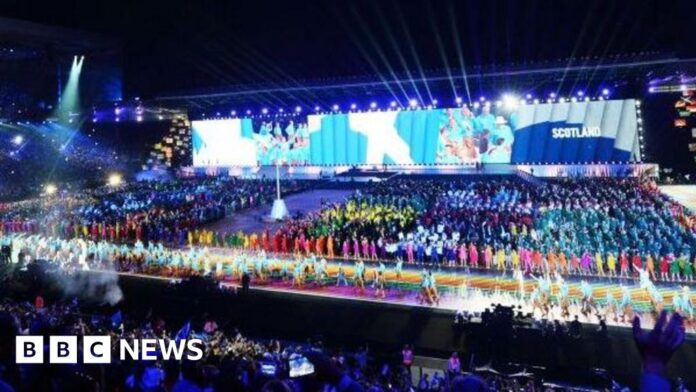[ad_1]
Commonwealth Games Scotland says the event would possess “no significant ask of public funds”.
Their proposal uses a ” significantly reduced budget costing £130 to £150m”, with £100m from the Commonwealth Games Federation.
The balance would be made up through commercial income, such as ticketing, sponsorships and broadcasting rights.
In contrast, the budget for 2014 was £543m, with £425m from the Scottish government and from Glasgow City Council.
This time the council seems to be keeping a safe distance until more is known.
It said there was no Glasgow bid at this stage, and that the proposal had come from Commonwealth Games Scotland – although the council was providing support and technical advice.
Ian Reid CBE, the chair of Commonwealth Games Scotland, said that there was a need for a model that did not rely on large public investment.
He added: “We believe our concept provides the CGF with a viable, cost effective and exciting solution which importantly won’t involve significant sums of public funding.”
One way to help save on costs would be to use existing infrastructure, but questions remain regarding other aspects of the plan.
The athletes village built for 2014 has been converted into housing, so another location would be required.
A wider issue is that while potential organisers could sell the prospect of another big sporting event to the public, it’s more difficult to sell an obvious legacy this time around.
There will be no building of new venues, no new housing for an athlete’s village and no huge infrastructure investment for the city.
If the city council is to give the kiss of life to an event many see as in terminal decline, they will have to be creative in explaining why.
[ad_2]






